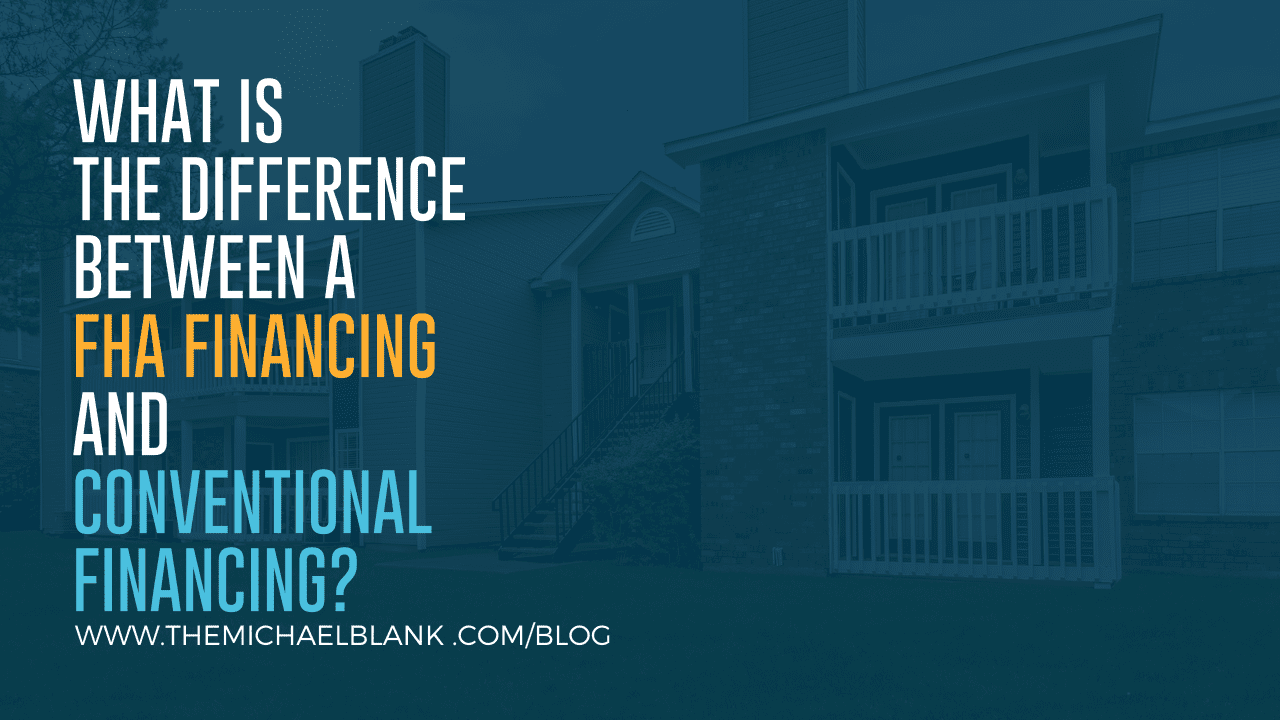Make sure you download ALL my resources for FREE at this link: https://themichaelblank.com/vault
What is the Difference Between FHA Financing and Conventional Financing?
It's important to understand the different types of financing available to investors, so that you are informed about the choices you’re making. The more knowledge you have in your toolbox, the better. FHA financing and conventional financing are options you've probably encountered. Today, we’re going to go over the differences between the two.
FHA
FHA stands for Federal Housing Administration. This is a government-backed loan that is insured by the FHA, one of the largest insurers in the world. It is designed to make homeownership more affordable for individuals and families by offering lower down payment requirements and more lenient credit score standards.
Since 1934, the FHA has insured over 50 million mortgages across the nation.
Conventional Financing
Conventional financing, on the other hand, is not backed by the government and is instead provided by private lenders. As you might expect, these loans typically require a higher down payment and have stricter credit score requirements.
These loans come in many shapes and sizes. Conventional loans are the most common type of mortgage loan.
Let's take a closer look at the differences between FHA financing and conventional financing.
Down Payment Requirements
One of the biggest differences between these two types of loans is the down payment requirement. FHA loans typically require a minimum down payment of 3.5%, while conventional loans require a minimum of 5-20%. This, of course, depends on the lender's requirements and the borrower's creditworthiness.
One benefit of FHA financing is its accessibility. It might be the best option for investors who don't have a lot of cash on hand.
Credit Score Requirements
FHA loans also have more lenient credit score requirements than conventional loans. While a conventional loan may require a credit score of 620 or higher, FHA loans may be available to borrowers with credit scores as low as 580.
Even so, a higher credit score will help you get better terms and interest rates.
Mortgage Insurance
Another difference between FHA and conventional loans is the mortgage insurance requirement. FHA loans require borrowers to pay an upfront mortgage insurance premium (MIP) as well as an annual premium, while conventional loans may require private mortgage insurance (PMI) if the down payment is less than 20%. However, the PMI can be canceled once the borrower reaches a certain level of equity in the property.
Loan Limits
Finally, FHA loans have lower loan limits than conventional loans. In most areas, the maximum loan amount for an FHA loan is $356,362 for a single-family home, while conventional loans can go up to $548,250 in 2021. This means that conventional financing may be a better option for investors looking to purchase higher-value properties.
You should also be aware, there are other types of financing available. VA loans for veterans and active-duty military members, for example, and even USDA loans for properties in rural areas.
In Conclusion
The more you understand the terms and vocabulary of investing, the better equipped you will be to make informed decisions and reach your goals. That’s why we share these educational posts.
If you haven’t already, check out these related articles:
What is a Net Operating Income?

